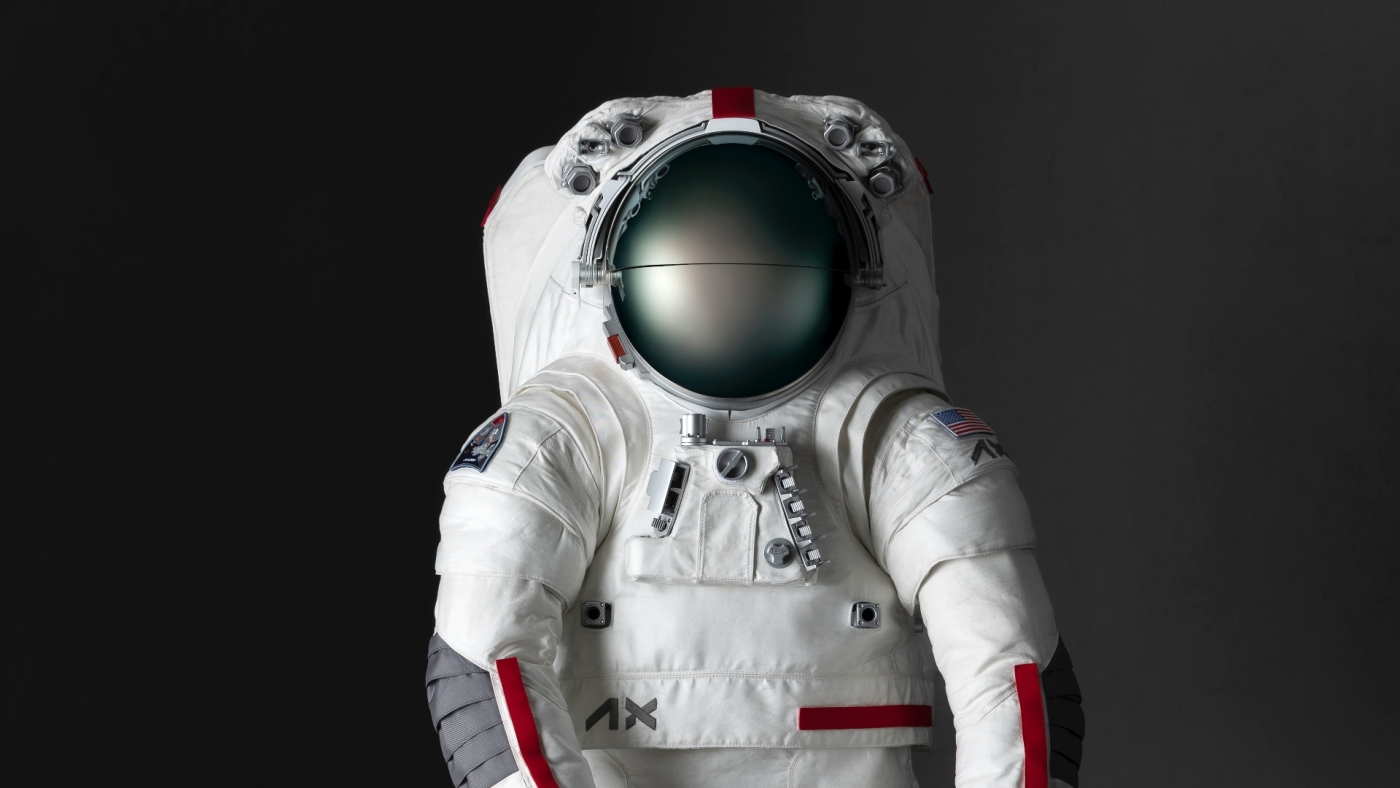
The new suits are designed to keep astronauts safe and flexible as America seeks to renew its moon explorations.
Image courtesy of Prada / Axiom Space/Image courtesy of Prada / Axiom Space
hide caption
toggle caption
Image courtesy of Prada / Axiom Space/Image courtesy of Prada / Axiom Space
NASA’s new space suits are getting a hand from Italian luxury fashion house Prada in preparation for humanity’s 2026 return to the moon’s surface.
Axiom Space and Prada debuted the flight design of the Axiom Extravehicular Mobility Unit (AxEMU) spacesuit this week at the International Astronautical Congress in Milan.
The suit is expected to be used for NASA’s historic Artemis III mission in 2026, marking humankind’s first return to the moon since 1972.
“Our elite teams have redefined spacesuit development, establishing new pathways to innovative solutions and applying a state-of-the-art design approach for the AxEMU,” said Matt Ondler, president of Axiom Space. “We have broken the mold.”

Design for the Axiom Space, Prada spacesuit that will see the first woman and person of color land on the moon.
Image courtesy of Prada / Axiom Space/Image courtesy of Prada / Axiom Space
hide caption
toggle caption
Image courtesy of Prada / Axiom Space/Image courtesy of Prada / Axiom Space
The modernized suits are meant foremost to keep astronauts safe in the throes of space’s harsh environment, with improved mobility from earlier designs as a close second mandate.
In its release announcing the suit designs, Axiom Space said the suits have improved flexibility, performance and safety and offer specialized tools for scientists’ missions.
The suit is one size fits all and includes lights, an HD camera, 4G/LTE communications, and in-suit nutrition.
“It will withstand extreme temperatures at the lunar south pole and endure the coldest temperatures in the permanently shadowed regions for at least two hours. Astronauts will be able to perform spacewalks for at least eight hours,” the press release announcing the new design said.
America has long dreamed about returning its astronauts to the moon, but the U.S. space program has been plagued by technical delays and a lack of funding.
In 2019, the Trump administration directed NASA to land humans on the moon’s unexplored southern lunar pole by 2024, with the ultimate goal of eventually landing an earthling on Mars.
However, the program was delayed partly because of failures to meet spacesuit design criteria in time.
When launched, the Artemis III mission will see the first woman and the first person of color traverse the low-gravity lunar surface.
Axiom Space said the suit is nearing its final development stage and has already completed a critical pressurized simulation, the first since Project Apollo.

